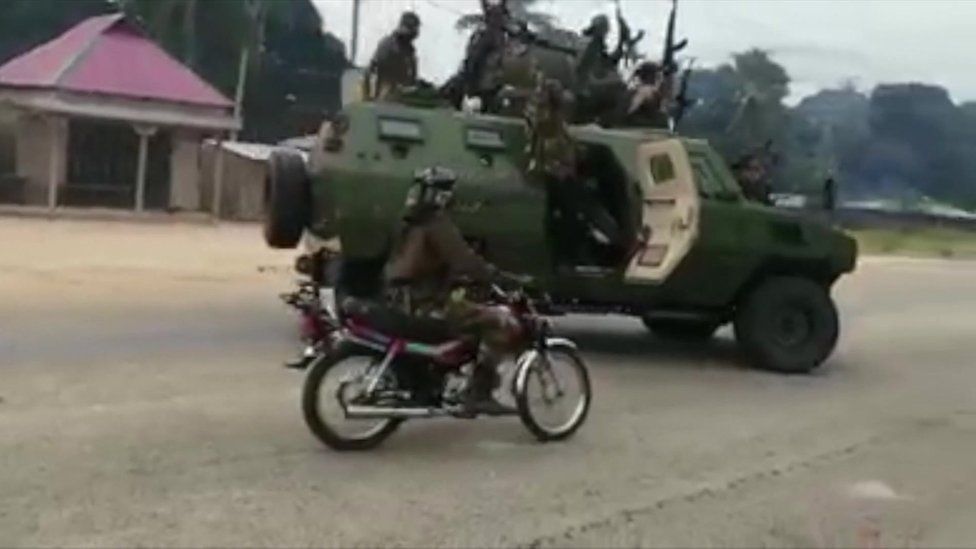Some people rub their stomachs and talk of their hunger. Others describe burnt villages, abducted relatives, and the agonies of long treks through the bush to reach safety.
But it is the beheadings that most haunt Palma, a besieged town in northern Mozambique. It is a place cut off from the outside world by roving gangs of machete-wielding Islamist fighters, and it is now symptomatic of a wider security and humanitarian crisis that has engulfed a remote region the size of Scotland.
More than half a million people in the region have been driven from their homes in the past 12 months.
“They cut his neck,” said Said Ahmad, 47, sombrely drawing his finger across his throat as he explained how dozens of insurgents entered their village one night, earlier this month, before killing seven men including his brother, Bernado Bacar.
Another eyewitness described the grotesque aftermath in the isolated village of Quirindi, close to the mangrove forests that line the nearby Indian Ocean, with bloodied bodies tied up with rope and severed heads carefully balanced on top of them.

Said Ahmad managed to escape with his brother’s extended family and walked through the night to Palma. When he later called his brother’s mobile phone, a stranger answered and said: “We killed your brother. We are afraid of nothing. We are al-Shabab and we kill as we please.”
Like so many people I spoke to while travelling in Cabo Delgado province, he seemed baffled by the violence, by the Islamists’ gruesome scorched-earth agenda, and by the transformation of a neglected but relatively peaceful region into a war zone.
Al-Shabab is how Mozambicans now refer to a shadowy Islamist insurgency that began four years ago in the province – an insurgency that was initially dismissed as a minor distraction in a region that is rich in minerals and focused on reaping the benefits of an international $15bn (£11bn) off-shore gas project.
Today things look very different, with a third of the province’s population forced to flee. The US state department has designated the insurgents as a terrorist organisation dubbed “Isis-Mozambique” – a reference to the franchise arrangement that the Islamic State group (IS) is believed to have set up with the local faction.
bbc.com